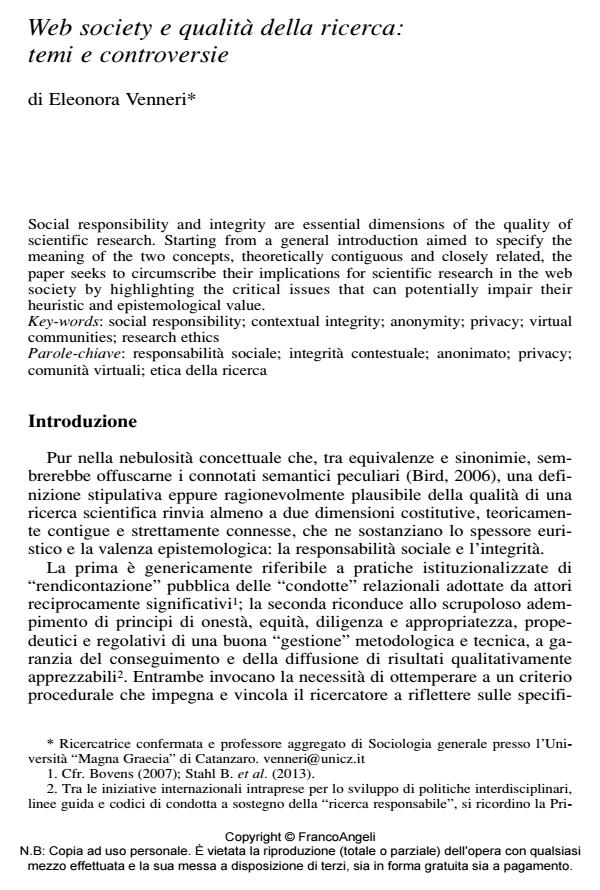Web society e qualità della ricerca: temi e controversie
Titolo Rivista SALUTE E SOCIETÀ
Autori/Curatori Eleonora Venneri
Anno di pubblicazione 2014 Fascicolo 2014/3
Lingua Italiano Numero pagine 20 P. 71-90 Dimensione file 543 KB
DOI 10.3280/SES2014-003006
Il DOI è il codice a barre della proprietà intellettuale: per saperne di più
clicca qui
Qui sotto puoi vedere in anteprima la prima pagina di questo articolo.
Se questo articolo ti interessa, lo puoi acquistare (e scaricare in formato pdf) seguendo le facili indicazioni per acquistare il download credit. Acquista Download Credits per scaricare questo Articolo in formato PDF

FrancoAngeli è membro della Publishers International Linking Association, Inc (PILA), associazione indipendente e non profit per facilitare (attraverso i servizi tecnologici implementati da CrossRef.org) l’accesso degli studiosi ai contenuti digitali nelle pubblicazioni professionali e scientifiche.
Social responsibility and integrity are essential dimensions of the quality of scientific research. Starting from a general introduction aimed to specify the meaning of the two concepts, theoretically contiguous and closely related, the paper seeks to circumscribe their implications for scientific research in the web society by highlighting the critical issues that can potentially impair their heuristic and epistemological value.
Parole chiave:Responsabilità sociale; integrità contestuale; anonimato; privacy; comunità virtuali; etica della ricerca
Eleonora Venneri, Web society e qualità della ricerca: temi e controversie in "SALUTE E SOCIETÀ" 3/2014, pp 71-90, DOI: 10.3280/SES2014-003006